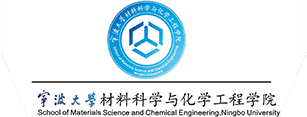报告时间:2025年10月22日下午4:20
报告地点:1#实验楼225会议室
报告人:塞尔维亚克拉古耶瓦茨大学Nenad Janković教授
报告人简介:Nenad Janković is a Full Research Professor and Deputy Director at the Institute for Information Technologies Kragujevac, University of Kragujevac.
Research interests: Drug design and synthesis, nanocomposite design.
Prizes and Awards:
*The best researcher at the University of Kragujevac in 2022, for period 2019-2021.
*The best researcher at the Institute for Information Technologies Kragujevac in 2022.
*Medal for the scientific zeal and success of the Serbian Chemical Society as an expression of recognition for the results of research in the field of green and synthetic chemistry with an emphasis on the Biginelli reaction, 2020, et al.
Funding:
*COST Action (CA21135, Modelling immunotherapy response and toxicity in cancer-IMMUNO-model), 2022- ,
*COST Action (CA18202, Network for Equilibria and Chemical Thermodynamics Advanced Research-NECTAR), 2022-2024,
* Vision 2030, Saudi Arabia, 2021- , et al.
报告摘要:Lithium-ion batteries are becoming increasingly important for electrifying the modern transportation system and, thus, hold the promise to enable sustainable mobility in the future. However, their large-scale application is hindered by severe safety concerns when the cells are exposed to mechanical, thermal, or electrical abuse conditions. These safety issues are intrinsically related to their superior energy density, combined with the (present) utilization of highly volatile and flammable organic-solvent-based electrolytes. Improving the thermal stability of electrolytes and the safety of LIBs is one of the imperatives of our investigations.
The challenges, which so far prevent the widespread replacement of organic carbonate-based electrolytes, will also be mentioned. Starting from rather “facile” electrolyte modifications by (partially) replacing the organic solvent or lithium salt and/or the addition of functional electrolyte additives, conceptually new electrolyte systems, including ionic liquids (ILs) are considered. Ionic liquid/organic solvent mixtures are investigated as potential optimal electrolytes for lithium-ion batteries (LIBs) that can combine low flammability, good thermal stability and high electrical conductivity. That approach provides a great chance of developing highly functionalized, new electrolyte systems, which may overcome the afore-mentioned safety concerns related to conventional electrolytes, also offering enhanced mechanical, superior thermal performance, electrochemical performance and safety tolerance to both overcharge and thermal abuse.
欢迎广大师生踊跃参加!

